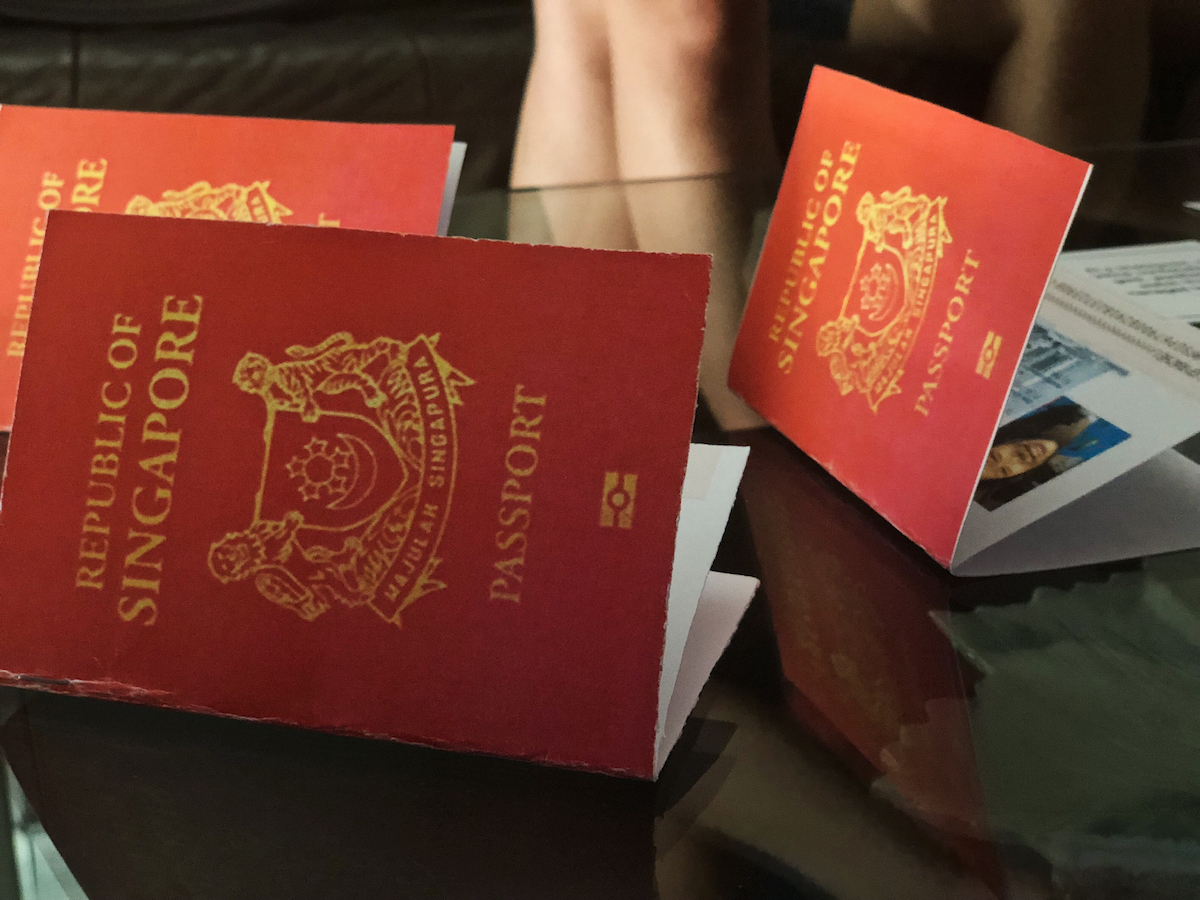Top image credit: RICE File Photo
Who deserves citizenship in Singapore is an issue that has risen in pitch over the years. As usual, the loudest voices come from those with the most extreme viewpoints. We’ve heard a lot from the PSP’s Leong Mun Wai about foreigners as of late. Typically, he harps on about work pass requirements and economic agreements that import foreign talent such as CECA.
But during the budget debate, he took it one step further. In a question to MOM’s Dr Tan See Leng, Mr Leong asked for statistics on the number of ‘new citizens’ in Singapore over the last 20 years. His perennial concern in parliament is that foreigners are stealing PMET jobs from Singaporeans, and he sought to confirm this hunch by requesting some data points.
His request is troubling because it ‘others’ naturalized citizens, implying that there is some ‘native’ strain of Singaporeans who are threatened by the unfairly advantaged foreign-born Singaporeans. Dr Tan responded to Mr Leong’s absurd request incredulously: “Singapore is an immigrant nation and openness is one of our core strengths. I urge you (Mr Leong), have a care. Don’t undermine our cohesiveness.”
And yet, Mr Leong’s request for data, though dubious in intention, speaks to a larger mystery in Singapore: Who are our newest citizens, and how were they vetted?
The naturalization process is so opaque that a ‘consulting’ industry has emerged as an attempt to fill in the blanks. Rejection letters for citizenship in Singapore do not include a reason as to why an applicant was unsuccessful. Rejected applicants are often left to their own devices, wondering what went wrong.
For work passes, the process is more straightforward—perhaps because the stakes are lower. Transient foreigners are, after all, just another tool in the nation-building kit, and can be deployed and dismissed whenever.
Permanent residency and citizenship are obviously more complicated than work passes. Granting citizenship is like placing a bet on the future. For a young and land-scarce country the factors for approval could be: who is likely to thrive here, and what holes in the national project need filling? This is speculation, of course. There’s no public information on the selection process beyond the eligibility criteria.
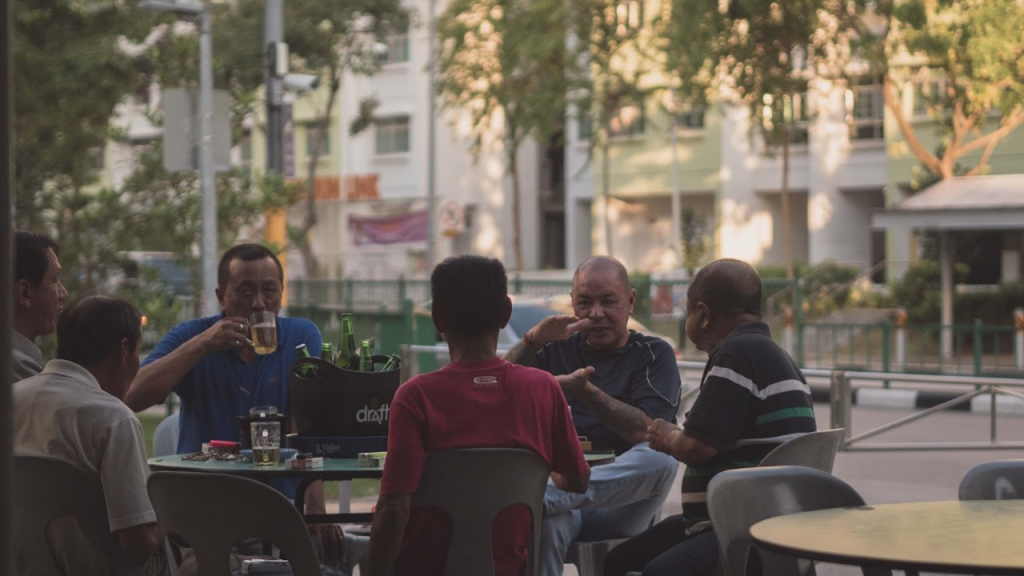
Colour me surprised at the breadth of experts who advertise their immigration assistance online. They’re not lawyers, nor affiliated with the government. Finding an exact description of these services (and their cost) is tricky, but the benefits are touted loudly in big letters on the landing sites. For example: How Would You Like To Open Up Your Letter Box And Finally See That Long-Awaited ICA Letter?
Given that the application process is available online from start to finish via government portals, it’s peculiar that prospective PRs and citizens are willing to walk this murky extra mile. After all, since the ‘experts’ aren’t government-approved, the role of an immigration consultant is that of a glorified form filler. No matter what they claim, any person beyond the ICA is an outsider to the process. And thus, not privy to the machinations of assessing the candidates.
So, we are left to wonder: What makes a prospective Singaporean desirable in 2022?
If I Don’t Belong Here, Then Who Am I?
After waiting for the better part of two years, Leila’s application for citizenship in Singapore was rejected. She was born and raised in Singapore after her parents emigrated with her older sister, Yasmin, from the Middle East in the early ‘90s. Both sisters went through the local school system, and identify strongly with their respective secondary schools. Leila has fond memories of singing Catholic hymns and Hold On To Our Dream with her IJ peers.
The expat experience of Singapore is foreign to Leila. All of her friends are Singaporean. Still, throughout her adolescence, she felt alienated from the expat scene—she doesn’t hang around in places like Sentosa or Marina Bay. Interestingly, because she can ‘code switch’ by speaking Singlish, Leila has always felt that she was perceived by others as Singaporean.
Until she tried to seal the deal.
“If I don’t belong here, then who am I?” Leila opined with an air of resignation when asked how it felt to receive her rejection letter from the ICA. At the age of 26, her decisions in the last few years have been oriented around getting citizenship. She went overseas to earn a degree in law, and then returned to Singapore to climb the corporate ladder.
“Like every Singaporean, I want to live a successful and happy life. After I came back from university, I climbed the corporate ladder, contributing to my CPF and paying my taxes, in hopes this would further prove my ‘rootedness’ in Singapore.” Leila said.
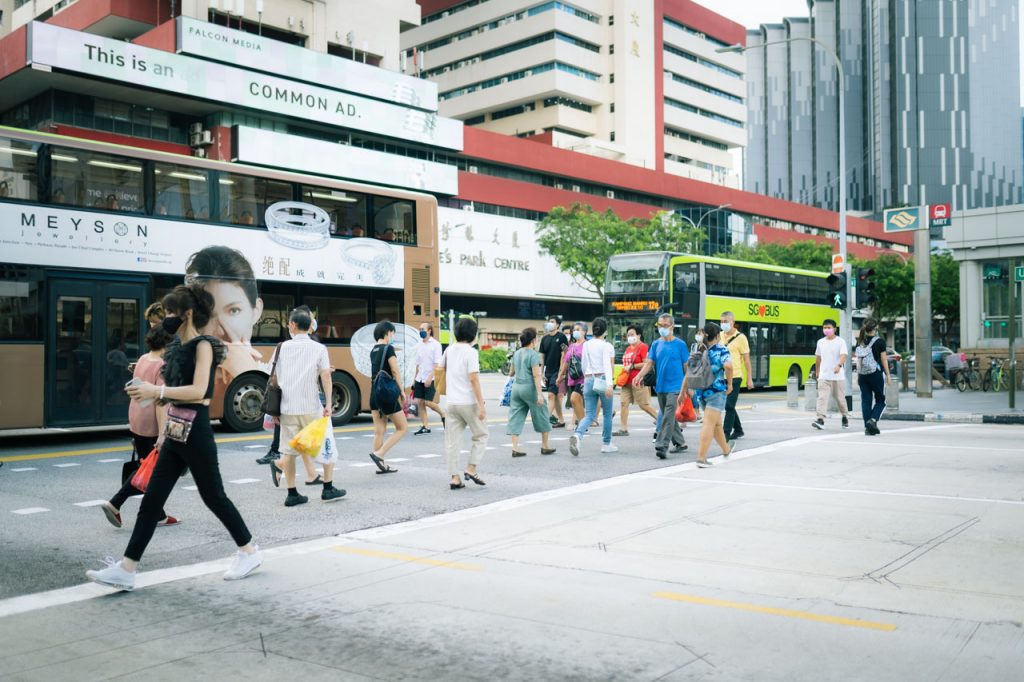
Though Leila is a Permanent Resident, there was always a nagging thought in the back of her mind that her right to live in Singapore was tenuous or conditional.
“To some extent, it’s been hard to fully relax. The Middle East isn’t my home. I haven’t visited in over a decade. My foundational memories and life experiences are in Singapore. Knowing that my PR could just get denied one day is unsettling,” Leila explained.
In terms of family planning, she doesn’t want to pass Middle Eastern citizenship to her children, given that it’s a place she hasn’t visited for some time and feels disconnected from. In an ideal world, her children would be Singaporean. They would go through the local school system, learn Singlish, and grow up eating kaya and drinking kopi peng—like their mother.
But after the lengthy waiting period and curt rejection, Leila lost hope.
“In other countries the citizenship process is straightforward. Even if it’s difficult or stringent, like in the United States, there is at least a clear understanding of what does or doesn’t help to reach the end goal. And if you’re rejected, sometimes they even tell you why.”
The rejection line that Leila received from ICA stated that she should only re-apply if her circumstances were to change substantially. Her sister, Yasmin, received the same sparse rejection in her letter. Both sisters mentioned that they felt that if they weren’t accepted at the ‘peak’ of their careers and lives—with no dependents or financial liabilities—then they weren’t hopeful about their chances of success down the line, either.
For Yasmin, this was painful to reckon with. She’s worked hard to get where she is now as a PhD-candidate and an educator in a prestigious local university.
“Through my job, I’m helping to shape the younger generation of Singaporean doctors, dentists, and nurses. If I’m not desirable now, then I can’t see how my qualifications are going to change dramatically after the accomplishments I’ve already made.”
The sisters are weighing their options. They’re hopeful that eventually, they will be able to settle down and place roots where they are welcome. In their hearts, they want their roots to be in Singapore. But experience has told them otherwise. For Leila, who has a less certain career trajectory than Yasmin, she may have to leave her home to find it again. It’s an alienating, painful decision.
“I’m tired of feeling unwanted,” she sighed.

She’s felt heartbroken throughout the process. Ultimately, her resolve to stay and make things work in Singapore has collided with a clear-eyed assessment of the probability of an acceptance. A bright spot throughout her ordeal, however, has been the way Singaporeans have rallied behind her—acknowledging and validating the effort she has made to integrate here, and her right to call the little red dot her home.
“I’ve felt an outpouring of love from my friends, and from strangers online. After I posted about my citizenship journey on social media, I got so many messages from Singaporeans offering advice or simply commiserating with me and feeling my pain.”
Conclusively, Leila and her sister mulled over the same question after receiving their rejection: if not me, then who?
Insights From A Trick Mirror
According to consultants, Kay and Elena, from The Immigration People (TIP), the desirable characteristics for prospective Singaporeans are dynamic. What was successful in 2020, may not be so in 2022. To be clear: the insights gleaned from TIP are based solely on anecdotal evidence. These are conclusions drawn from applications they’ve personally filed and opinions developed along the way.
Right off the bat, Kay mentioned TIP had seen a higher number of approvals for their clients since the pandemic started. She believes this is due to less competition overall, as travel restrictions dissuaded foreigners from entering Singapore and a large number of foreigners have been retrenched due to the pandemic. Subsequently, there are fewer eligible foreign candidates applying for PR.
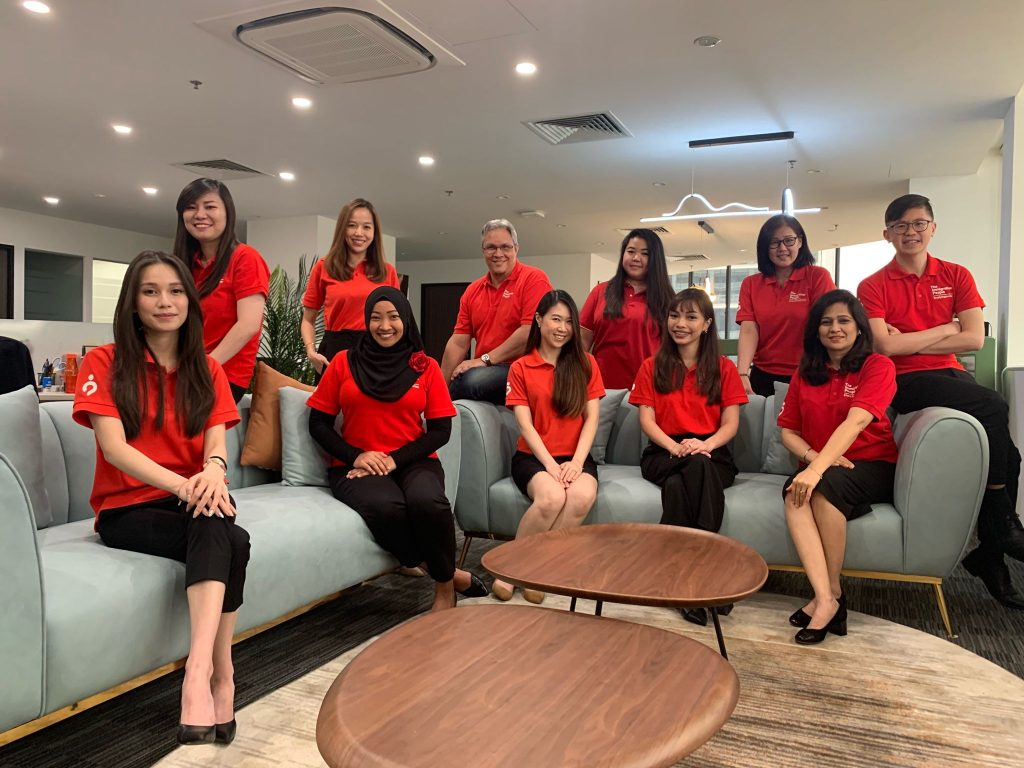
In fact, the population of PR’s residing in Singapore has decreased significantly since 2011, down 6.2% in 2021 from 2020. The number of citizens residing in Singapore also dropped by 0.7%.
According to TIP, overrepresented nationalities may be held to higher standards when applying for citizenship and PR due to quotas. Since the pandemic started, most of the successful PR applications from the TIP were for Chinese, Indian and Caucasian candidates. Kay was quick to note that this is not always the case, and approval criteria are elastic and on a case-by-case basis.
“Ethnicity and nationality are just one factor. It’s how your whole application works together that really matters. Age, gender, qualifications, and industry play a significant role as well.”
Elena—who was trained by an ex-ICA officer (it’s worth noting that many of these agencies claim this)—asserted that often, citizenship desirability is dependent on the national moment.
“Say for example that you have two candidates that land on the same officer’s desk. And he has an acceptance quota. Both candidates are PR who are in the same salary, qualifications and age bracket. The difference? One is a nurse at Tan Tock Seng, and the other is a chef in the F&B sector. It’s more likely the nurse will get approved, as there’s been a serious manpower shortage in the healthcare industry.”
According to TIP, sectors with high approval rates are Finance, IT, and Tech. These industries are where local talent currently lags, and is in need of nurturing and tutelage to remain globally competitive, and thus less reliant on foreign talent for innovation.
Kay added that this strategy of fulfilling the national lack is also forward-thinking, as ICA takes into consideration Singapore’s long-term future goals as well.
“For some time, Singapore has been focused on becoming a 360 sustainable smart nation, utilizing new technologies to optimize our systems and processes. Candidates who are highly skilled entrepreneurs in sectors such as tech agriculture and sustainable development and energy are desirable.”
Is Singaporean-ness Measurable?
It’s hard to get a good read on what exactly is the explicit benefit of working with an immigration consulting service like TIP. In our interview, I was given the hard sell—their ‘integrity’ in an unregulated market was touted loudly, which reminded me of when I visited the Singapore Debt Collection Service. They’re comparable in terms of purview: SDCS can’t force the return of money, and TIP can’t guarantee the success of an application.
TIP is transparent about its pricing. PR application services start at S$2,350, before GST, and citizenship at S$3,850, before GST. To their credit, it’s unusual for an immigration consulting firm to confirm costs in public. When asked what services warrant this price tag, I wasn’t fully convinced their offerings were more than form filling, but I was won over, somewhat, by the legitimacy of the services that TIP can provide.
“You’d be surprised by the silly mistakes people make while filling out the lengthy and complicated forms,” Elena said before detailing some of the common mistakes she sees in applicants who filed for PR or citizenship in Singapore without their help: addresses written incorrectly, names placed in the wrong order, erroneous passport particulars.
“The Singapore government is very finicky when it comes to paperwork. Silly mistakes are an easy way for an ICA officer to reject an applicant in any crowded and selective field.” She concluded.
TIP also stresses the importance of the murkiest, most qualitative category—rootedness. Efforts made to assimilate in Singaporean society “go a very long way” in pushing a candidate from satisfactory to desirable. Often, TIP links their prospective applicants with regulated local charities, so potential candidates for PR and Citizenship can give back to society and integrate more with the locals.
“Expats can be insular. When taking the path to becoming Singaporean, it’s important to prove that you’re willing to stay put, not just accept residency or citizenship in Singapore and leave for a job or send your kids to school elsewhere.”
Beyond The New Normal
Returning to my original question: What makes a prospective Singaporean desirable in 2022? A definitive answer hasn’t emerged. Despite TIP’s educated guessing, the inner workings of the ICA are to a certain extent, shrouded in mystery. To be clear: this isn’t a criticism of discrete assessment in the immigration process. All sovereign nations reserve the right to be selective (and secretive) about naturalization.
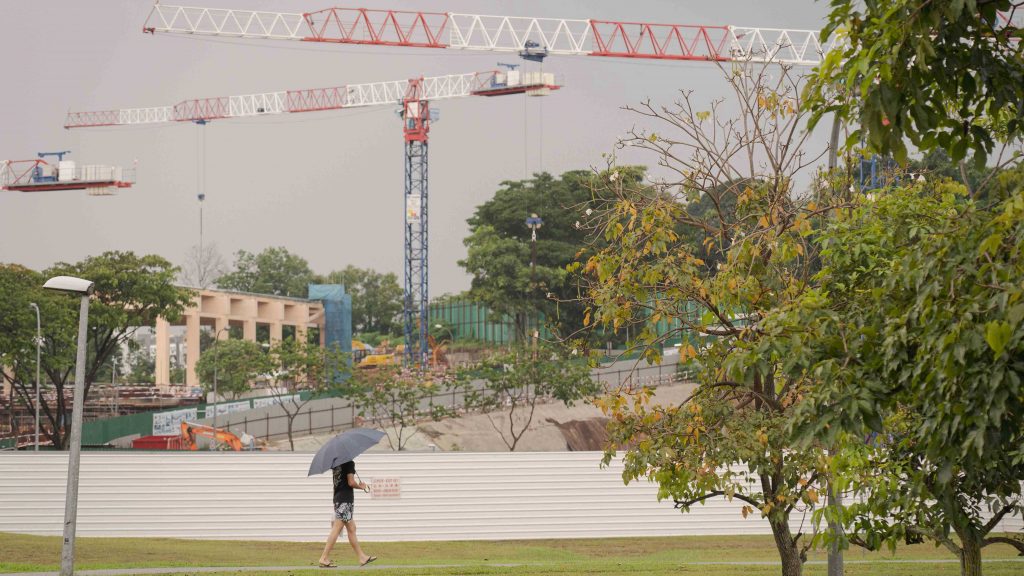
I do wonder, though, whether some declassification can be helpful to lower the pitch of the ‘belonging’ discourse in Singapore. A critique often lobbed at foreign workers of all levels, nationalities, and qualifications over the years is that they exist in opposition to the goals of the Singaporean project. For instance: foreign domestic workers disrupt the family unit, the CECA migrants threaten local livelihoods, and so on and so forth. This faulty logic is now extended to separate naturalized and born citizens, as demonstrated by Mr Leong in parliament.
If the government were to clearly state the Singaporean project’s long-term future goals, perhaps there could be some healthy discourse on the population and skill gaps that need filling. What could that look like? Perhaps it’s tackling issues such as the fertility rate by offering more citizenship in Singapore to settled Permanent Residents or outlining some measurable ‘rootedness’ qualifications, so there is common ground between the ‘new’ and the ‘old’ citizens that underscores the importance of social cohesion.
I’m spitballing here, but the point stands: aligning on the common good for the future generations can do good by fostering open discourse, lowering the temperature on immigration, and clamping down on reflexive gatekeeping. In the post-pandemic world, where SMMs and travel restrictions have been volatile and at times, incoherent, ’road maps’ are more important than ever, especially beyond the waning global health event.
Singapore has shown resilience against the virus. But what about the other challenges it will face along the way? The aforementioned low fertility rate, ageing population, and the global energy crisis will cause turbulence down the line. Good governance is preemptive and proactive, and Singapore has a track record of gambling well on their needs in the future.
Naturalising citizens, like importing foreign talent, is but one tool in the national tool kit. How can this tool remain useful against the chaotic events ahead? Perhaps, it’s with a little more transparency, so that Singapore can court desirable citizens while also reducing the blow for those who have lesser chances at making Singapore their permanent home.
After all, Leila, Yasmin, and TIP had the same wish list from the ICA to make their lives easier: Can we get more than a one-line rejection, please?

